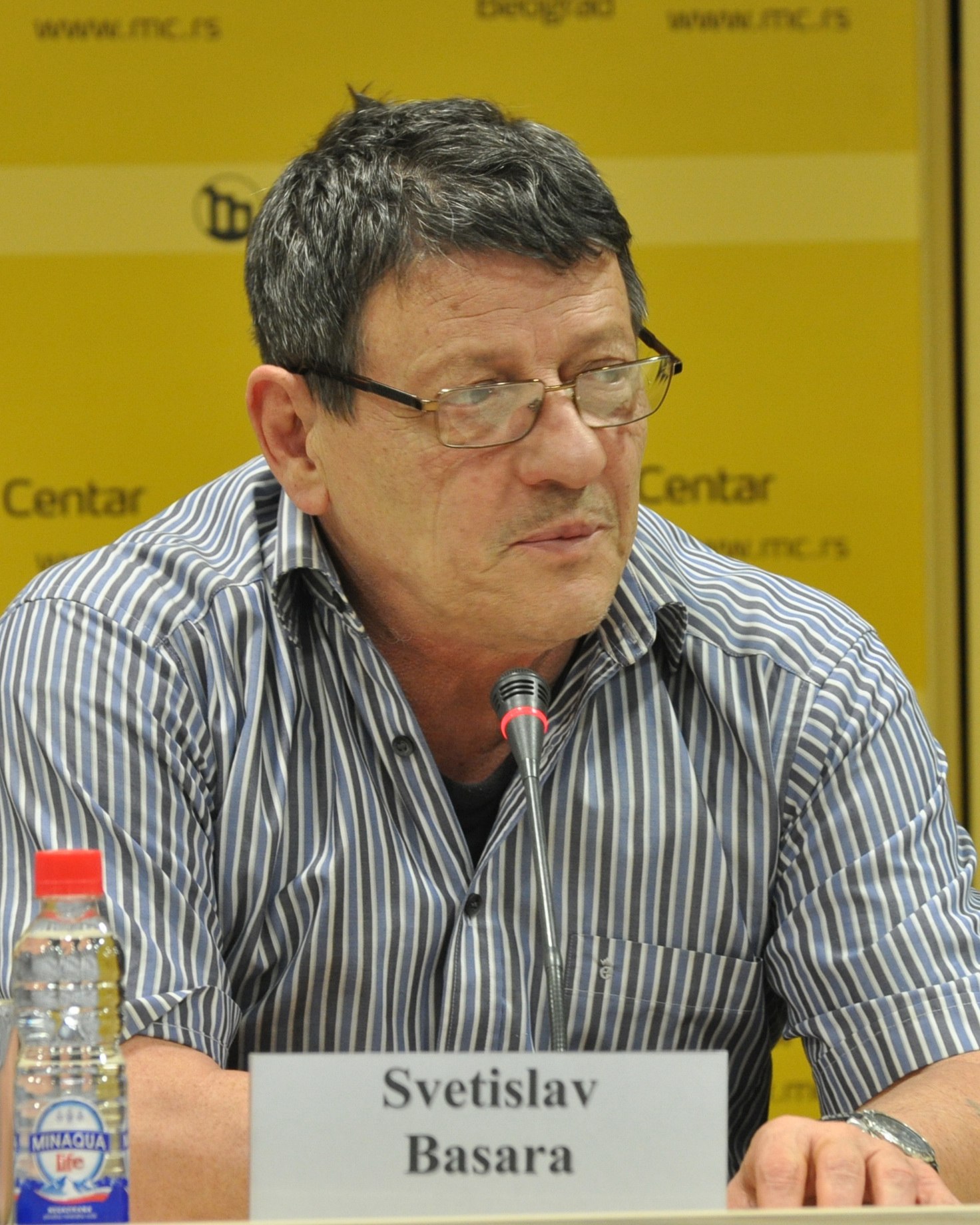|
David Albahari
David Albahari (, ; 15 March 1948 – 30 July 2023) was a Serbian writer. Albahari wrote mainly novels and short stories in the Serbian language. He was also an established translator from English into Serbian language, Serbian. He was a member of the Serbian Academy of Sciences and Arts and a University of Belgrade graduate. Albahari was awarded the prestigious NIN Award for the best novel of 1996 for ''Mamac'' (''Bait''). He was among the award's finalists on seven other occasions. Biography David Albahari was born on 15 March 1948 in Peć,Biography at SANU official website, in the former Socialist Federal Republic of Yugoslavia, Yugoslav region of Socialist Autonomous Province of Kosovo, Kosovo to a Sephardi Jews, Sephardic Jewish father and a mother of Serbian origin (who had previously been married to an Ashkenazi Jewish ma ... [...More Info...] [...Related Items...] OR: [Wikipedia] [Google] [Baidu] [Amazon] |
:Template:Infobox Writer/doc
Infobox writer may be used to summarize information about a person who is a writer/author (includes screenwriters). If the writer-specific fields here are not needed, consider using the more general ; other infoboxes there can be found in :People and person infobox templates. This template may also be used as a module (or sub-template) of ; see WikiProject Infoboxes/embed for guidance on such usage. Syntax The infobox may be added by pasting the template as shown below into an article. All fields are optional. Any unused parameter names can be left blank or omitted. Parameters Please remove any parameters from an article's infobox that are unlikely to be used. All parameters are optional. Unless otherwise specified, if a parameter has multiple values, they should be comma-separated using the template: : which produces: : , language= If any of the individual values contain commas already, add to use semi-colons as separators: : which produces: : , pseu ... [...More Info...] [...Related Items...] OR: [Wikipedia] [Google] [Baidu] [Amazon] |
Calgary
Calgary () is a major city in the Canadian province of Alberta. As of 2021, the city proper had a population of 1,306,784 and a metropolitan population of 1,481,806 making it the third-largest city and fifth-largest metropolitan area in Canada. Calgary is at the confluence of the Bow River and the Elbow River in the southwest of the province, in the transitional area between the Rocky Mountain Foothills and the Canadian Prairies, about east of the front ranges of the Canadian Rockies, roughly south of the provincial capital of Edmonton and approximately north of the Canada–United States border. The city anchors the south end of the Statistics Canada-defined urban area, the Calgary–Edmonton Corridor. Calgary's economy includes activity in many sectors: energy; financial services; film and television; transportation and logistics; technology; manufacturing; aerospace; health and wellness; retail; and tourism. The Calgary Metropolitan Region is home to Canada' ... [...More Info...] [...Related Items...] OR: [Wikipedia] [Google] [Baidu] [Amazon] |
Ellen Elias-Bursać
Ellen Elias-Bursać (born 1952) is an American scholar and literary translator. Specializing in South Slavic literature, she has translated numerous works from Bosnian, Croatian, and Serbian. Early life Ellen Elias was born in Cambridge, Massachusetts. Her parents were Peter and Marjorie (née Forbes) Elias. She has two brothers. Her aunt was Barbara Elias, a poet. She studied at the Commonwealth School in Boston, graduating in 1970. She attended Macalester College, receiving a Bachelor of Arts degree in Russian literature and language in 1974. During her undergraduate studies, she attended a study abroad programme in Yugoslavia. She worked as a freelance translator, and studied towards a master's degree at the University of Zagreb. In 1999, she received a PhD from University of Zagreb in philology; her dissertation was titled ''Augustina-Tina Ujevića prijevodi iz anglo-američke književnosti: komparativno/kontrastivna lingvo-stilistička analiza''. Career Elias-Bursać wo ... [...More Info...] [...Related Items...] OR: [Wikipedia] [Google] [Baidu] [Amazon] |
Geist (magazine)
''Geist'' is a Canadian literary magazine published quarterly since 1990. The magazine takes its name from the German word geist (meaning "mind" or "spirit"). ''Geist'' was co-founded in 1990 by Stephen Osborne and Mary Schendlinger in their living room, with financing of just $7,500. On April 20, 2015, ''Geist'' announced that Osborne and Schendlinger would be stepping down and staff members Michał Kozłowski and AnnMarie MacKinnon would be taking over. The magazine is known in part for its series of Canadian maps (e.g. "Canadian placenames that sound impolite," "The Beer Map of Canada," etc.) and for spearheading various campaigns, such as petitions to have folk singer Stan Rogers inducted into the Canadian Music Hall of Fame and the ''Geist Annual Literal Literary Postcard Contest''. ''Geist'' has received numerous award nominations, including National Magazine Awards in 2010 and 2017. It won the 2017 Gold Medal for Photojournalism & Photo Essay for Terence Byrnes' ''Sout ... [...More Info...] [...Related Items...] OR: [Wikipedia] [Google] [Baidu] [Amazon] |
Republic Of Macedonia
North Macedonia, officially the Republic of North Macedonia, is a landlocked country in Southeast Europe. It shares land borders with Greece to the south, Albania to the west, Bulgaria to the east, Kosovo to the northwest and Serbia to the north. It constitutes approximately the northern third of the larger geographical Macedonia (region), region of Macedonia. Skopje, the capital and largest city, is home to a quarter of the country's population of over 1.83 million. The majority of the residents are ethnic Macedonians (ethnic group), Macedonians, a South Slavs, South Slavic people. Albanians in North Macedonia, Albanians form a significant minority at around 25%, followed by Turks in North Macedonia, Turks, Romani people in North Macedonia, Roma, Serbs in North Macedonia, Serbs, Bosniaks in North Macedonia, Bosniaks, Aromanians in North Macedonia, Aromanians and a few other minorities. The region's history begins with the Paeonia (kingdom), kingdom of Paeonia. In the la ... [...More Info...] [...Related Items...] OR: [Wikipedia] [Google] [Baidu] [Amazon] |
Skopje
Skopje ( , ; ; , sq-definite, Shkupi) is the capital and largest city of North Macedonia. It lies in the northern part of the country, in the Skopje Basin, Skopje Valley along the Vardar River, and is the political, economic, and cultural center of the country. As of the 2021 North Macedonia census, 2021 census, the city had a population of 526,502. Skopje covers 571.46 km² and includes both urban and rural areas, bordered by several Municipalities of North Macedonia, municipalities and close to the borders of Kosovo and Serbia. The area of Skopje has been continuously inhabited since at least the Chalcolithic period. The city — known as ''Scupi'' at the time — was founded in the late 1st century during the rule of Domitian, and abandoned in 518 after an earthquake destroyed the city. It was rebuilt under Justinian I. It became a significant settlement under the First Bulgarian Empire, the Serbian Empire (when it served briefly as a capital), and later under the Otto ... [...More Info...] [...Related Items...] OR: [Wikipedia] [Google] [Baidu] [Amazon] |
Another Story Festival
The Another Story festival (, tr. ''Druga Prikazna''), is an annual three-day literary event, taking place in Skopje, Republic of North Macedonia. The name of the festival refers to the idea of affirming the local and global faces of ''otherness'' in culture and literature. At its inauguration in 2016, the festival's topic was ‘Literature and Activism’, and was inspired by the “ Colorful Revolution” protests in the county. Origin and history The inauguration of the festival corresponded with the mass protests, organized by the civil sector in Macedonia, against alleged corruption within the country's political elite. The idea behind the festival is to "harvest" the creative energy from the street protests and transform them into artistic expressions of the desire for democratization and emancipation. Another objective of the festival is to popularize literature and culture, both of which, according to the organizers, have been quite marginally maintained in the country ... [...More Info...] [...Related Items...] OR: [Wikipedia] [Google] [Baidu] [Amazon] |
Isidora Sekulić Award
The Isidora Sekulić Award (, sr-cyr, Награда Исидора Секулић) is a Serbian, and former Yugoslav, literary prize established by the Belgrade municipality of Savski venac in 1967 and awarded annually since 1968 in honor of the writer and Belgrade native Isidora Sekulić. The award honors writers for the best work of modern Serbian literature Serbian literature ( sr-Cyrl, Српска књижевност, ''Srpska književnost''), refers to literature written in Serbian language, Serbian and/or in Serbia and all other Serbian diaspora, lands where Serbs reside. The history of Serbia ... of the previous year. In its first decade, several authors were awarded annually. Since 1979, only one author has received the award each year. A total of 74 authors (63 male and 11 female) have received the award since its inception. [...More Info...] [...Related Items...] OR: [Wikipedia] [Google] [Baidu] [Amazon] |
National Library Of Serbia
The National Library of Serbia () is the national library of Serbia, located in the capital city of Belgrade. It is the biggest library, and oldest institution in Serbia, one that was completely destroyed many times over in the last two centuries. History In 1832, the library was established by bookbinder Gligorije Vozarović in his bookstore, and its first collection consisted of gifts of publisher and bookseller Vozarović and other Serbian cultural figures. On 28 February 1832, Dimitrije Davidović sent a letter on the organization of the library to Miloš Obrenović. In November of the same year, Prince Miloš ordered that one copy of each printed book be made available to the library. During Serbian campaign of World War I, World War I, the Library building and collections were damaged by bombing, so the small remaining holdings were moved from Belgrade to Niš and Kragujevac for their protection. Damages, loses and lack of facilities hampered significantly reconstruction i ... [...More Info...] [...Related Items...] OR: [Wikipedia] [Google] [Baidu] [Amazon] |
NIN Prize
The ''NIN'' Award (, Нинова награда), officially the Award for Best Novel of the Year, is a prestigious Serbian (and previously Yugoslavian) literary award established in 1954 by the NIN (magazine), ''NIN'' weekly and is given annually for the best newly published novel written in Serbian language, Serbian (previously in Serbo-Croatian).B92''Grozdani Olujić NIN-ova nagrada'' (NIN Prize to Grozdana Olujić), 15 Jan 2010 The award is presented every year in January by a panel of writers and critics. In addition to being a highly acclaimed award capable of transforming writers' literary careers, the award is also sought after because it virtually assures bestseller status for the winning novel. The literary website ''complete review'' called it the "leading Serbian literary prize" in 2012. Between 1954 and 1957, the award was given to the best novel published in Yugoslavia, regardless of the language, but all the novels awarded in this period were written in Serbo-Cro ... [...More Info...] [...Related Items...] OR: [Wikipedia] [Google] [Baidu] [Amazon] |
Vilenica Prize
Vilenica International Literary Festival () is a festival dedicated to literature that was founded in 1986 in Slovenia. It takes place annually in several locations on the Karst Plateau in the Slovene Littoral, including inside Vilenica Cave. It is arranged by the Slovene Writers' Association together with the Cultural Centre Vilenica from Sežana. The highlight of the festival is the awarding of the Vilenica International Literary Prize to a Central European author for "outstanding achievements in the field of literature and essay writing." Background and events The festival was arranged for the first time in 1986 and was co-founded by Veno Taufer, who is still a member of the prize awarding jury. Originally it was simply called "Vilenica Festival" but since 2005 it is formally called "Vilenica International Literary Festival". From the outset, it was the outspoken purpose of the organisers to promote "cultural pluralism, tolerance and non-aggression", and at that time to provide ... [...More Info...] [...Related Items...] OR: [Wikipedia] [Google] [Baidu] [Amazon] |




